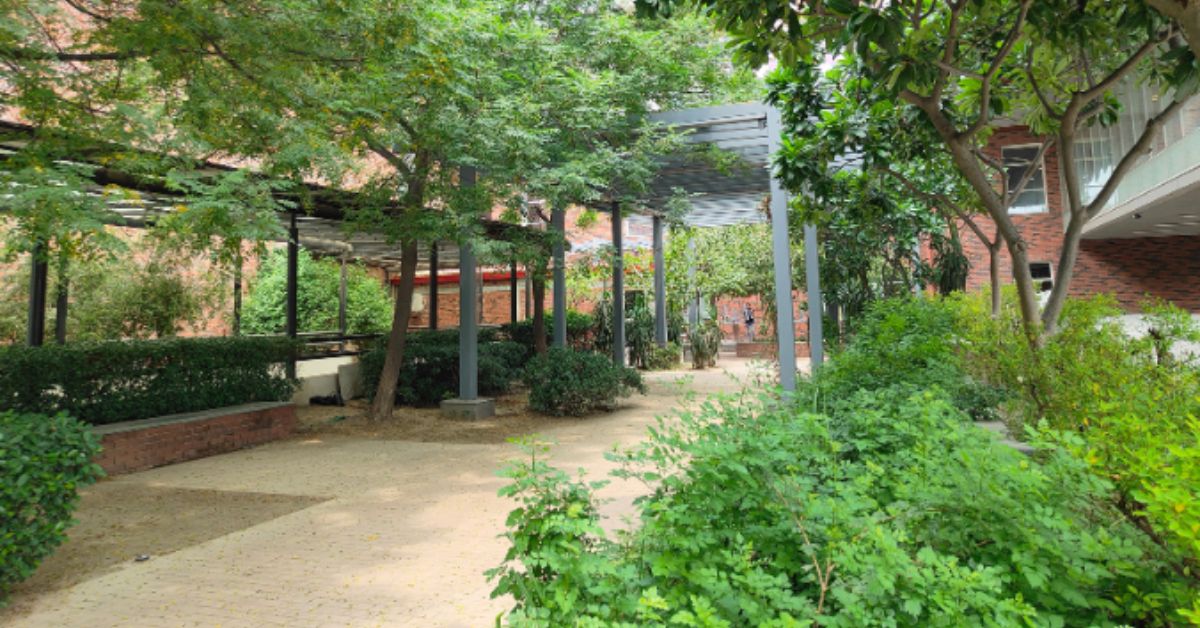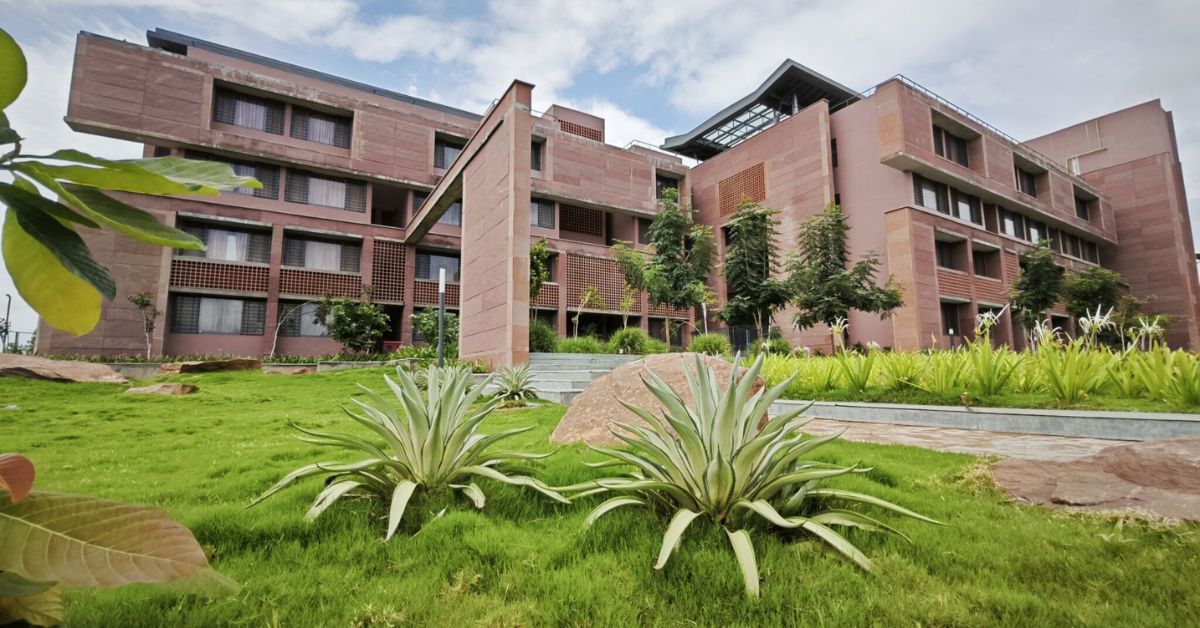Think about a classroom the place the Earth isn’t just a subject of research, however a continuing companion.
Throughout India, a brand new sort of studying house is taking form. On some campuses, photo voltaic panels tilt alongside flowering timber. Rainwater slips quietly into recharge pits. School rooms open not into corridors, however into courtyards the place the air feels lighter.
Indian universities are rethinking what it means to construct, to be taught, to stay — not by including sustainability as an additional, however by weaving it into on a regular basis life. At a time when local weather change feels overwhelming, these campuses provide one thing easy however highly effective: proof that it’s attainable to develop with the land, not towards it.
Right here’s a better have a look at 5 establishments quietly main the way in which.
1. IIT Gandhinagar, Gujarat
IIT Gandhinagar is India’s first campus to obtain a 5-star score below GRIHA LD (Inexperienced Score for Built-in Habitat Evaluation – Giant Developments), a nationwide framework assessing the environmental efficiency of large-scale tasks.
Key initiatives:
- Zero sewage discharge: All wastewater is handled on-site utilizing anaerobic reactors and root zone remedy programs, with the recycled water used for irrigation.
- Vitality effectivity: Buildings are constructed with fly ash bricks and cavity partitions to cut back warmth achieve. Passive cooling strategies, corresponding to Passive Downdraft Evaporative Cooling (PDEC), are employed to minimise power consumption.
- Photo voltaic power: A photo voltaic carport and rooftop panels generate as much as 500 kWp, assembly almost half of the campus’s power wants.
- Water administration: Progressive rainwater harvesting buildings, impressed by conventional step-wells, acquire and retailer rainwater throughout the campus.
- Waste administration: Biogas crops and compost pits course of natural waste, turning it into power and manure for landscaping.
- Sustainable transport: The campus promotes walkability and gives electrical car charging stations, together with CNG-based shuttle companies.
2. Ashoka College, Haryana
Ashoka College integrates sustainability into its campus life and educational framework.

Key initiatives:
- LiveGreen@Ashoka: This initiative promotes sustainable residing by inexperienced expertise interventions, behavioural change campaigns, and operational enhancements.
- Solar energy: The campus generates almost 0.9 megawatts of photo voltaic electrical energy, considerably decreasing its carbon footprint.
- Biodiversity: Residence to 1,664 timber, the campus helps a mixture of native and unique plant species, enhancing native biodiversity.
- Centre for Local weather Change and Sustainability (3CS): This multidisciplinary centre fosters analysis and advocacy on local weather change and sustainability points.
3. Amrita Vishwa Vidyapeetham, Tamil Nadu & Nationwide
Amrita Vishwa Vidyapeetham’s campuses are designed with a powerful emphasis on environmental stewardship.

Key initiatives:
- Water conservation: The college reuses 80 p.c of its water by superior remedy crops, supporting sustainable landscaping and agriculture.
- Renewable power: Photo voltaic panels throughout campuses contribute considerably to power wants, with real-time power monitoring programs in place.
- Waste administration: Natural composting and plastic-free zones are applied to minimise environmental impression.
- Inexperienced infrastructure: Campuses characteristic inexperienced roofs, permeable pavements, and concrete gardens to reinforce environmental high quality.
- Neighborhood engagement: Initiatives like Amrita SeRVe help rural communities with sustainable improvement tasks.
4. TERI Faculty of Superior Research, Delhi
TERI SAS serves as a residing laboratory for sustainable practices and training.
Key initiatives:
- Inexperienced constructing design: The campus incorporates passive photo voltaic design, energy-efficient programs, and water and waste administration options.
- Educational programmes: TERI SAS presents specialised programs in local weather science, renewable power, and sustainable improvement.
- Analysis and advocacy: The establishment hosts occasions like Retopia to debate clear power prospects and sustainability.
5. Azim Premji College, Karnataka
Azim Premji College integrates sustainability into its campus design and educational applications.

Key initiatives:
- Sustainable infrastructure: Buildings are designed for pure cooling and lighting, decreasing power consumption.
- Educational focus: The BSc in Environmental Science and Sustainability programme emphasises interdisciplinary studying grounded within the Indian context.
- Neighborhood engagement: College students take part in environmental tasks that intersect with social justice, working with underserved communities.
- Centre for Local weather Change and Sustainability: The centre conducts analysis and advocacy to strengthen India’s response to local weather challenges.
Edited by Khushi Arora

